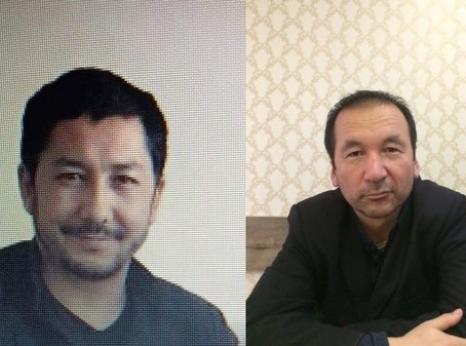Saudi Arabia: Stop Extradition Of Uyghur Men To China

Aimidoula Waili is a Chinese religious scholar of the Uyghur Muslim minority that has been brutally persecuted by the Chinese government since 2017 in the Xinjiang Uyghur Autonomous Region (Xinjiang) in northwestern China. Aimidoula Waili, a 54-year-old father of four, was previously arrested in Xinjiang in August 2013 because one of the employees at his factory had allegedly incited an uprising. He told Amnesty International that he had been tortured in prison: being electrocuted and forced to stand on ice while wearing nothing but slippers and underwear for up to three hours every day. After completing his sentence, he was released in 2016 and went to Turkey where he was granted residency documents that allowed him to remain in the country indefinitely. In February 2020, he travelled to Saudi Arabia from Turkey on a tourist visa to perform Umrah, a religious pilgrimage, with his friend Nuermaimaiti Ruze.
Nuermaimaiti Ruze, a 46-year-old father of five, travelled to Saudi Arabia from China for the first time in June 2013 to perform Umrah and eventually settled down in Mecca, working in a restaurant with a sponsored residence permit.
Xinjiang is one of the most ethnically diverse regions in China. More than half of the region’s population of 22 million people belong to mostly Turkic and predominantly Muslim ethnic groups, including Uyghurs (around 11.3 million), Kazakhs (around 1.6 million) and other populations whose languages, cultures and ways of life vary distinctly from those of the Han who are the majority in “interior” China.
Since 2017, under the guise of a campaign against “terrorism” and “religious extremism”, the government of China has carried out massive and systematic abuses against Muslims living in Xinjiang. It is estimated that over a million people have been arbitrarily detained in internment camps throughout Xinjiang since 2017.
In June 2021, Amnesty International published a report revealing how hundreds of thousands of Muslim men and women in China’s Xinjiang Uyghur Autonomous Region are being subjected to arbitrary mass detention, torture, political indoctrination and forced cultural assimilation. Testimonies from former internment camp detainees detailed the extreme measures taken by Chinese authorities since 2017 to essentially root out Islamic religious beliefs and traditions, as well as the cultural practices and local languages of the region’s Muslim ethnic groups.
The Chinese government has gone to great lengths to cover up the human rights violations taking place in Xinjiang, and to prevent members of the Uyghur diaspora from speaking up about them. Amnesty International has documented numerous cases where Uyghurs, Kazakhs and other Turkic Muslim people in Xinjiang had been detained simply for living, travelling, or studying abroad or for communicating with people abroad. Many were detained simply for being “connected” with people who lived, travelled, studied, or communicated with people abroad.
Amnesty International has launched an international campaign calling for the closure of the internment camps, with more than 70 detailed casefiles on some of those thought to be currently detained. As of September 2021, more than 300,000 signatures had been collected from all over the world to demand the release all those currently detained in internment camps and prisons in Xinjiang.
Article 3 of the Convention against Torture and Other Cruel, Inhuman or Degrading Treatment or Punishment states that no state party shall extradite a person to another country where they would be in danger of being subjected to torture. Saudi Arabia became party to the convention on 23 September 1997.
The evidence Amnesty International has gathered provides a factual basis for the conclusion that the Chinese government has committed at least the crimes against humanity of imprisonment, torture and persecution against Uyghurs, Kazakhs and other predominantly Muslim ethnic minorities.